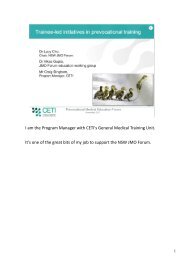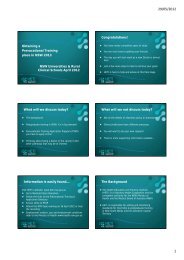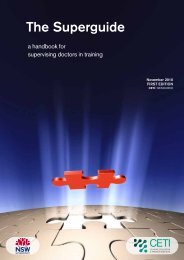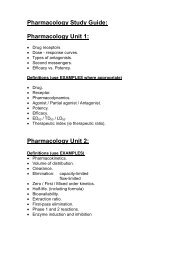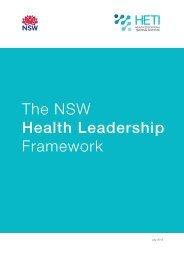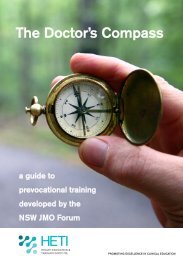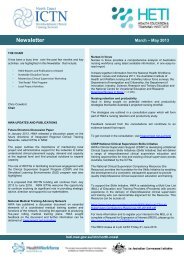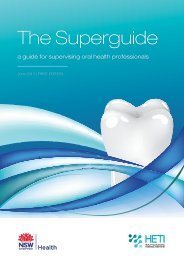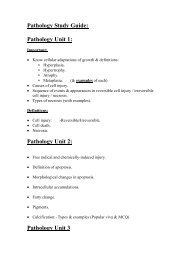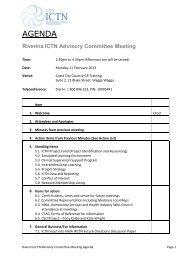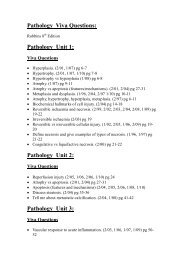a handbook for supervising allied health professionals - HETI - NSW ...
a handbook for supervising allied health professionals - HETI - NSW ...
a handbook for supervising allied health professionals - HETI - NSW ...
You also want an ePaper? Increase the reach of your titles
YUMPU automatically turns print PDFs into web optimized ePapers that Google loves.
THE SUPERGUIDE<br />
Getting to know your supervisee<br />
Patient safety comes first<br />
Where is your supervisee<br />
on the learning curve <br />
30<br />
Have you checked their skills<br />
Patient safety is a core<br />
responsibility of all clinical<br />
staff that cannot be delegated.<br />
The clinical care and safety of the patient is the responsibility of all <strong>health</strong> care<br />
<strong>professionals</strong>. It is important when establishing the supervisory relationship to ascertain<br />
the clinical skills of the supervised clinician, whether they are a new graduate or moving<br />
into a new clinical speciality.<br />
For example, a physiotherapist may move from orthopaedics, where they are a confident<br />
practitioner, to respiratory medicine, where they have not worked. While they may be<br />
confident in biomechanical assessment and treatment approaches, they may require further<br />
development of specific skills under supervision such as cardiopulmonary interventions<br />
be<strong>for</strong>e completing these tasks independently or being rostered after hours and on call.<br />
Situations as described above are common place in the <strong>NSW</strong> Health system. To ensure<br />
patient safety it is critical that the supervisor:<br />
• discusses the intervention plan <strong>for</strong> the patient with the supervisee to facilitate<br />
clinical reasoning and decision making to ensure safe patient care<br />
• routinely oversees patient care as required to ensure that <strong>allied</strong> <strong>health</strong> <strong>professionals</strong><br />
are acting competently<br />
• is vigilant to detect triggers <strong>for</strong> a need <strong>for</strong> further involvement (to prevent or correct<br />
management errors by staff or to escalate care)<br />
• is accessible when assistance is sought or ensures there is someone else to go<br />
to when the supervisor is absent.<br />
It is far better <strong>for</strong> supervisors to be actively engaged in supervision that prevents errors<br />
and maintains standards than to attempt to manage problems after the event.



